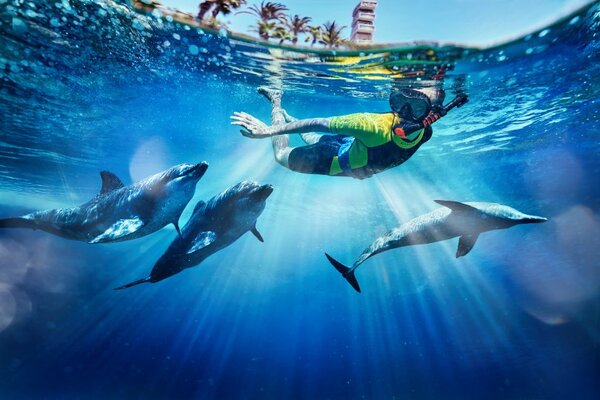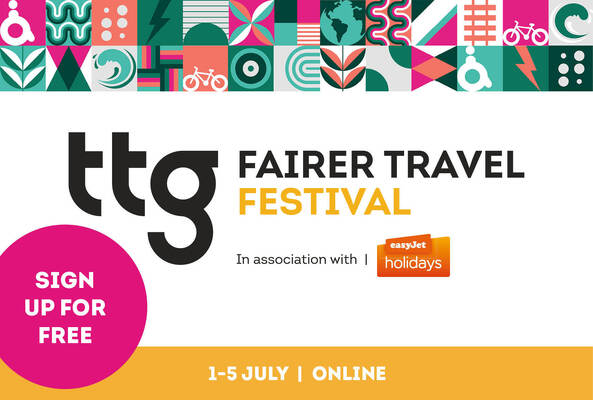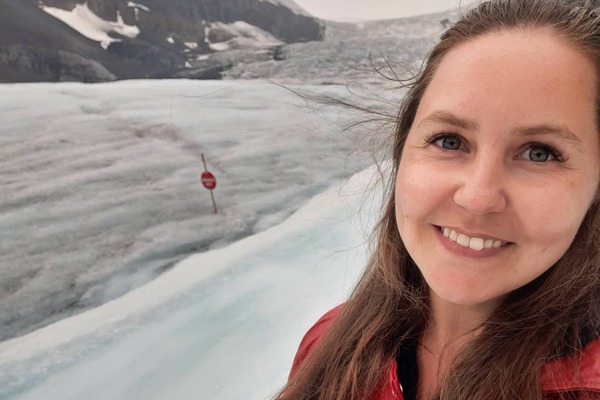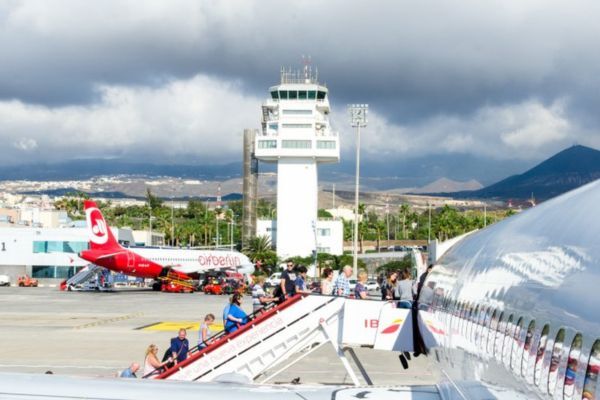Travel's wave of change on animal welfare: a long overdue step change?
After easyJet holidays, Jet2holidays recently became the latest operator to stop selling captive dolphin and whale attractions, and pressure is mounting on those who still do. Gary Noakes reports.
The days when tourists’ animal rights concerns were confined to grimaces in Spanish bars at bullfighting on TV are over, as easyJet holidays and Jet2holidays have illustrated.
Both have accepted public opinion is changing; mid-March, easyJet holidays pledged not to start offering any captive animal attractions, effectively banning the sale of marine parks and zoos.
Less than a fortnight later, Jet2holidays stopped selling captive dolphin and whale attractions following pressure from animal rights groups.
It’s all part of a step change for the industry – one that is perhaps long overdue.
While operators are clear on issues like modern slavery in their small print, most are less forthcoming about animal rights. Some may even work with suppliers that offer animal attractions despite appearing not to feature them.
But things are changing. Dr Carys Bennett, senior corporate projects manager at Peta – People for the Ethical Treatment of Animals Foundation – has worked with travel brands for five years.
“I’ve witnessed huge change,” she says. “More companies are moving towards not offering any animal attractions, and people are so much more aware of the issues.”
She singles out Newmarket Holidays for its Travel for Good policy, which includes a broad pledge not to “encourage or engage in any animal-related activities on any of our tours, or any other unfair activity which exploits animals”.
Abta in the firing line
The group now lists around 80 companies not selling captive dolphin or whale attractions. For those that do, Abta is often the lead on animal issues, although it withdrew advice on cetaceans in 2019, citing confused scientific evidence.
Peta regards Abta’s stance as out of date. “More than 37,000 supporters back out campaign urging Abta to take action on whales and dolphins, because it currently greenlights companies to do business as usual,” Bennett continues. “So many Abta members are taking an ethical stand it doesn’t make sense not to update guidelines.”
Abta, though, is sticking to its guns, saying: “We continue to engage with members and stakeholders on the important issue of dolphins in captivity, updating this information as and when new material comes to light.”
Operators face further scrutiny for selling hotels like Atlantis Dubai and Atlantis Bahamas that feature captive dolphins, while there is a growing boycott of camel rides at Egypt’s Giza pyramids by Explore Worldwide, Insight Vacations and others.
World Animal Protection is another organisation working with the industry. It lists 162 companies globally “committed to moving away from selling and promoting activities that use captive wild animals for entertainment".
These include riding animals, elephant washing, selfies with tiger cubs and so on. G Adventures, Intrepid Travel and Exodus Adventure Travels feature on a growing list of supporters.
Of the UK’s major operators, Tui is now the outlier, and has faced staunch scrutiny in recent months – during which time it has on several occasions confirmed to TTG it is reviewing its stance.
Advertising ban
There is further impetus for change. The UK Animals (Low-Welfare Activities Abroad) Act 2023 was passed in September, banning the advertising and sale of “specific unethical activities abroad”.
The Department for Environment, Food and Rural Affairs (Defra) defines this as “where animals are kept in captivity or confinement, subjected to cruel and brutal training methods, forced to take selfies or are ridden, drugged and de-clawed”.
Defra is consulting on the exact prohibitions. World Animal Protection said: “We are in touch with Defra but there’s no movement on the list of prohibited activities yet.”
It may well be the legislation is full of loopholes, but public sentiment has already shifted, and there will surely be more concessions on animal welfare from UK operators soon – because no one will want to be seen as last to change their spots.
The industry's stance
TTG approached the UK's three largest Atol-holding tour operators for further insight into their respective animal welfare policies and stances, and also assessed those of the country's biggest OTAs.
easyJet holidays
EasyJet holidays published its policy in March after working with World Animal Protection UK and other organisations. Among the big operators, it now has the strongest policy on animal rights.
It said it would not promote or offer “any attractions which may be harmful to animals within their tours and activities programme, including captivity attractions such as zoos and marine parks, animal performances, animal rides and sporting events involving animals”.
The operator said this extended to its partnership with Tui’s attractions app Musement: “We offer our tours and experiences through our dedicated easyJet holidays Musement platform, and all tours and experiences available to purchase with our packages will fall in line with this policy, so there are no animal attractions available,” it added.
Jet2holidays
Jet2holidays changed tack a few weeks after easyJet holidays following a series of protests by animal rights organisations around the country. It has now stopped selling captive cetacean attractions but still offers zoos.
It told TTG: “We recently confirmed that Jet2holidays no longer sells tickets to venues which feature cetaceans (orcas, whales and dolphins) for entertainment.
“We continue to sell some other zoological experiences and, although there continues to be high customer demand for such venues, we recognise how critical it is that animal welfare standards are adhered to."
Tui
Tui currently stands isolated in its stance on cetaceans. But there is behind-the-scenes acknowledgement something must change, particularly with Tui Group chief executive Sebastian Ebel understood to be taking a personal interest in sustainability issues.
A Tui spokesperson told TTG: “Our strategy is based on Abta guidelines and we continue to check venues against them – with the exception of venues with cetaceans. For those venues, we are reviewing our strategy and we expect to publish our approach in the near future.
“We are doing an in-depth analysis of scientific research and having an open dialogue with different stakeholders, including NGOs, scientists and experts on the subject, to take the most responsible decision.”
Tui sells SeaWorld, including separate Dolphin Encounter and Dine with Orcas tickets, plus Discovery Cove. Musement also offers Dolphin meet and greet at Atlantis Dubai and Tenerife’s Loro Parque.
Tui added: “We are deeply committed to ensuring that animals in captivity are in good condition. We are convinced that through our animal welfare strategy and audit processes in collaboration with our suppliers we can change the industry from the inside out."
The OTAs
Looking at the UK's top OTAs, Loveholidays signed a deal with Tui’s Musement in April. It said: “We have taken the decision not to offer any attractions that involve animals in captivity. Our portfolio of experiences with Musement has been curated to reflect this.”
Rival On the Beach does not sell excursions. Travel Republic sells tickets to SeaWorld, including the Dine with Orcas experience. It also features Atlantis The Palm in its programme.
The agent outlook
Animal welfare has been a focus for a number of TTG Sustainable Travel Ambassadors in recent months, with several graduates taking their training and newly acquired knowledge into the marketplace to lobby suppliers and share it with their clients.
TTG caught up with three members of the Sustainable Travel Ambassadors Class of 2023 to get their take on the animal welfare landscape within the UK travel trade.
Helen Bateman, Travel Counsellors
Some operators are being proactive in ensuring all tourism is responsible, but some side-step it by leaning on statements like "we adhere to Abta guidelines" or "we let our clients decide". Exploitative wildlife attractions should not be available to clients. It’s sad to hear from families who visited a park and later realised how terrible standards are.
Clare Collins-Doyle, Independent Travel Experts
It’s very encouraging some big operators are refusing to sell experiences with captive animals. If we can educate people that their desire to swim with a dolphin in a pool is cruel, there wouldn’t be such a strong desire to do it. Even this year, I’ve seen social media posts with people posing or swimming with dolphins. I don’t think they have identified the issue.
Rachel Tredwell, Tredwell Travel
There is still a huge amount of work to be done, but it is great to see some of the big household names really getting behind this as it will make a huge difference. Tui really needs to get involved. I think consumers need educating, and the ball sits in our court with this. They are often horrified to learn how animals are treated just so they can get their Instagram photo.
Discover the destinations & suppliers leading the way in responsible tourism
Exclusively for travel agents, the free-to-attend festival will provide the tools and contacts you need to sell sustainable travel with confidence. Find out what makes their products a great choice for a more responsible holiday, that's kinder to the planet and local communities, plus win prizes along the way!
Sign up for weekday travel news and analysis straight to your inbox

Gary Noakes
Supplier Directory
Find contacts for 260+ travel suppliers. Type name, company or destination.



















